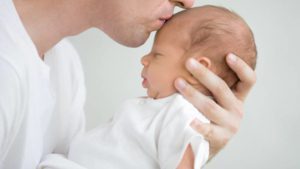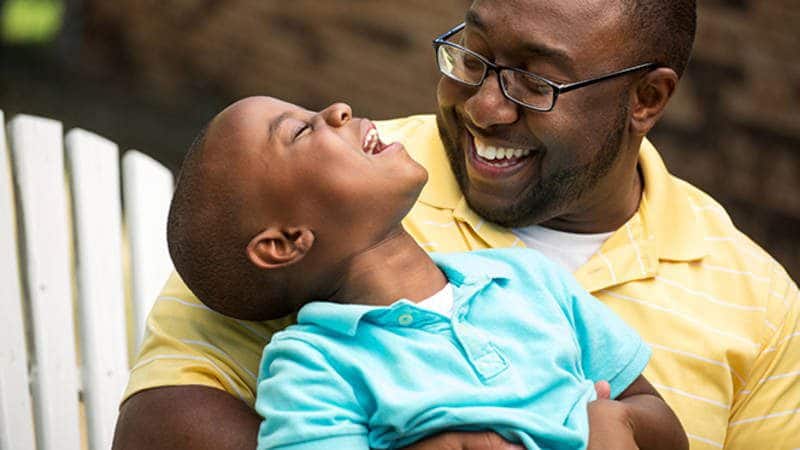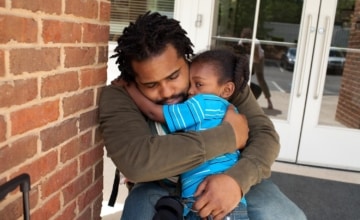Dads agree. 3 in 4 dads we surveyed say their lives began when they became a dad.
Dad, having you there changes your baby. Here’s what the research and data about fathers says.
- School and Career Success
Dads who are involved, nurturing, and playful with their babies have children with higher IQs and better language and thinking skills, compared to children with less-involved dads. A father’s involvement also is associated with fewer behavior problems at school and more career success. - Healthy Risk-Taking
Fathers push children beyond their comfort zone—in the best ways. Dads, more than moms, encourage their children to take calculated risks: trying the deep end of the pool, talking to someone new, or finding ways to overcome obstacles. - Managing Emotions
Dad’s style of playing may help children learn to regulate their feelings. Dads tend to be more physical in their play with their children than moms—which introduces excitement and unpredictability. Researchers think that this type of roughhousing with dad may help children learn how to manage their emotions.
If becoming a father made you feel “different,” you’re probably not imagining things. Scientists think the presence of a newborn causes physical changes that speeds you along the path to dad-hood.

- Cues for Caregiving
We know moms’ hormone levels change during pregnancy. So do Dads’! Scientists say both parents experience a rise in the hormone prolactin around the time of a baby’s birth. Prolactin promotes child-caring behaviors in both parents. - The Love Hormone
Here’s something to smile about: bonding time with your baby activates the circuits in your brain that are also involved in falling in love. When a dad has skin-to-skin contact with his baby, he releases oxytocin (sometimes knowns as the love hormone). Babies’ oxytocin levels rise, too. (Skin-to-skin contact between moms and babies has the same effect.) - Brain Rewards
MRI images provide more evidence that men’s priorities change when they have kids. Brain scans of fathers and non-fathers showed that the reward-sensing region of dad’s brains lit up when they saw pictures of toddlers. Not so in the non-dads. Another study found that in the first four months of parenting, fathers showed increases in parts of the brain involved in parental motivation, including the hypothalamus and amygdala, among others.
Fatherhood is life-changing, for dads and for babies. As tiring as being a dad is at times, all those moments add up to a lifetime of love and connection.



